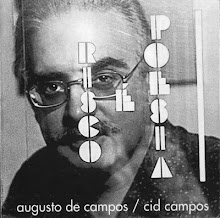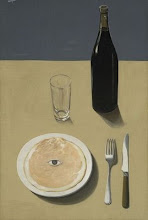23.1.26
Capitalis system to enslave everyone
When he describes capitalist society, Marx is constantly making the point that everything in it is under "illusions of the epoch", is dominated by "fetishism", and hence is unfree-except, of course, for the "fully conscious" revolutionary group. "As in religion, man is governed by the products of his own brain, so in capitalist production, he is governed by the products of his own hand". The freedom Marx has given with one hand he seems to be taking back with the other; everywhere he looks, everyone seems to be in chains. Yet if men are "free", how is it possible for them to have got into such a state of "unfreedom" in the first place? Or, alternately, if men are encased in a fly-bottle, how will it be possible for then to see things in any way but through a glass, darkly? If their whole outlook on life is "fetishistic", how will be possibel even to recognize that they are enslaved, let alone make the effort to set themselves free? The paradox here is the familiar paradox of self-deception. Who, exactly, is supposed to be doing the "deceiving"? If the subject himself, in what sense is it meaningful to say that he is actually "deceived"? If it is meaningful, how, once having suceeded, can he undo the job, and "undeceive" himself? These are perennial problems for a therapist, not to mention a philosopher; they are also central to Marx's analysis of capitalism as an "infantile disease", he might have said, of man, who with its passing was "comming into his own".
Amerikkka
Na era Trump, até os americanos estão desprotegidos contra capturas, detenções, prisões arbitrárias e assassinatos.
Porque não me ufano
Afastado de qualquer atividade do pensamento, os homens e as mulheres perderam exatamente aquilo que os diferencia dos seres irracionais. No fim do percurso, encontramos somente pessoas reduzidas a meros seres instintivos, sua parcela de humanidade está sendo sistematicamente pulverizada.
Erscheinung
O que falta para a vida das pessoas ser economicamente segura? O que falta para que a distribuição da riqueza seja justa? Em que sentido pode-se dizer que as pessoas são livres em uma ordem social desigual e imperfeita?
Holy Horrors
Murder in the street
Hipátia (360 - 415), uma brilhante matemática e astrônoma que dirigia a biblioteca de Alexandria, foi brutalmente assassinada pela horda de cristãos de São Cirilo.
22.1.26
A lenta flecha da beleza
A mais nobre espécie de beleza é aquela que não arrebata de vez, que não se vale de assaltos tempestuosos e embriagantes (uma beleza assim desperta facilmente o nojo), mas que lentamente se infiltra, que levamos conosco quase sem perceber e deparamos novamente num sonho, e que afinal, após ter longamente ocupado um lugar modesto em nosso coração, se apodera completamente de nós, enchendo-nos os olhos de lágrimas e o coração de ânsias. O que ansiamos ao ver a beleza? Ser belos: imaginamos que haveria muita felicidade ligada a isso. - Mas isto é um erro.
Friedrich Nietzsche
1844 - 1900
Necessário
É necessário ter: um corpo leve por natureza e uma consciência aliviada pela arte e pelo saber.
A que preço se compra as vantagens da vida social?
A atividade política exige uma vida plenamente racional e honesta, mas os representantes do povo brasileiro pouco uso do pensamento andam fazendo. Se a atividade política não for racional, correta e verdadeira, ela se torna uma diligência de bandidos. Até hoje, por exemplo, nenhum poder conseguiu elaborar uma estratégia eficaz para eliminar os bolsões de miséria e analfabetismo que estão incrustados no social.
New York Times Book Review | 1974
Karl Marx is the greatest theorist of work. He had distinctive insight into the troubled and contradictory life of "the proletariat, the modern working class". Marx saw work as an arena where, potentially, a worker could not only "create an objective world by his practical activity", but also "freely develop his physical and mental energy". On the other hand, in real work in the bourgeois society he lived in, the worker "mortifies his body and ruins his mind... he does not affirm himself, but denies himself... he feels himself only outside his work, and in his work he feels outside himself". Marx thought that even as work insulted and injured the workers, it made them smart enough to see what was going on, angry enough and disciplined enough to organize and revolt against a social system that turned work int a travesty of what it could be. This revolutionary vision was not only thrilling and terrifying, but plausible.
Marshall Berman
1940 - 2013
21.1.26
To the Finland Station
A study in the writing and acting of History
O herói trágico da história de Wilson, em Rumo à estação Finlândia, o último grande romance do século XIX, aquele que ocupa o centro do palco e que se ergue sobre todos os outros, mesmo muito tempo depois de sua morte, é Karl Marx. Pois Marx captou o sonho mais vigorosa e plenamente do que ninguém; lutou incansavelmente com as mais profundas contradições desse sonho em todos os seus trabalhos e viveu, como mostra Wilson, algumas das ambiguidades mais sombrias desse sonho no decorrer de sua própria existência. Pois Marx percebeu, com mais clareza do que qualquer outro pensador burguês, o potencial revolucionário inerente à sociedade burguesa: sua infinita produtividade; sua capacidade de romper a crosta do preconceito arraigado, da estupidez e da inércia; a amplitude de seu raio de visão, a abarcar o mundo inteiro, a avaliar todo tipo de relação humana e forma de vida; sua vontade de crescer e desenvolver-se; seu olhar aberto para o futuro. Ao mesmo tempo, Marx viu - e explicou de maneira definitiva em O Capital - o horror humano que todo esse progresso traz em sua esteira: a burguesia só consegue liberar energia humana destruindo seres humanos, usando-os como matéria-prima, como recursos a serem explorados, atirando-os no monturo da escória quando estão gastos, triturando-os quando atrapalham seu avanço.
A vida de Marx, na interpretação de Wilson, encarna as forças conflitantes que estão no cerne dessa sociedade que ele compreendeu tão bem. Descortinamos Marx em Londres, mergulhado numa pobreza desesperadora, vendo impotente seus filhos adoecerem e morrerem, corroendo-se de ódio contra incontáveis inimigos, capitalistas e socialistas, visíveis e invisíveis, incapaz de trabalhar cooperativamente com quem quer que fosse, explorando cruelmente aqueles a quem mais amava para poder criar sua grande obra e ajudar a por um fim na exploração para sempre, soterrado de culpa pela forma como vivia, mas incapaz de deter a engrenagem interna ou o demônio interior que o impelia insaciavelmente adiante. A caracterização que Wilson faz de Marx é brilhante e provavelmente insuperável, quase shakespeariana em sua grandeza trágica e angústia. Forçado a ferir para criar, Marx, o inimigo supremo da burguesia, destaca-se como um dos autênticos heróis da era burguesa.
Marshall Berman
1940 - 2013
19.1.26
Cobra Norato
They’re studying geometry
A lonely frog calls rain
Little river goes to school
He’s learning geography
Toads spell out the laws of the jungle
I hear cat soul mew in the woods
When Tincuã cuckoos it’s a bad omen...
18.1.26
17.1.26
A life in writing: Fiona MacCarthy (1940 - 2020)
The first book to be written in the Round Building was William Morris (1994), a biography that took equally seriously its subject's designs, writing and socialism. MacCarthy regards him as a "time traveller", still with us not only thanks to his wallpaper but his politics and environmentalism. News from Nowhere became "a kind of handbook for the romantic-intellectual English socialism that has only just ended with the death of Michael Foot". She was, however, "never convinced by Tony Blair pointing out how News from Nowhere was one of his favourite books: there's simply no meeting point between Blair and Morris the anti-parliamentarian, who wanted to turn the Houses of Parliament into a dung-house." At the end of a new edition of the biography, she asks how Morris would react to celebrity worship, parliamentary sleaze, bankers' bonuses, body enhancements, air kissing and numerous other modern horrors, in a long list that ends with "mass descent into illusion and banality". MacCarthy answers: "'Damn'd pigs! Damn'd fools!' You can hear Morris expostulate," and it's clear she is cheering him on.
Paul Laity
The Guardian
16.1.26
On the future of our educational institutions
I would fain describe to you what I take to be the nature of the educational questions now attracting such enormous and pressing attention. It seemed to me that I must recognise two main directions in the forces at work — two seemingly antagonistic tendencies, equally deleterious in their action, and ultimately combining to produce their results: a striving to achieve the greatest possible expansion of education on the one hand, and a tendency to minimise and weaken it on the other. The first-named would, for various reasons, spread learning among the greatest number of people; the second would compel education to renounce its highest, noblest and sublimest claims in order to subordinate itself to some other department of life — such as the se service of the State.
I believe I have already hinted at the quarter in which the cry for the greatest possible expansion of education is most loudly raised. belongs to the most beloved of the dogmas of modern political economy. As much knowledge and education as possible; therefore the greatest possible supply and demand — hence as much happiness as possible: — that is the formula. In this case utility is made the object and goal of education, — utility in the sense of gain — the greatest possible pecuniary gain.
In the quarter now under consideration culture would be defined as that point of vantage which enable one to "keep in the van of one's age", from which one can see all the easiest and best roads to wealth, and with which one controls all the means of communication between man and nations. The purpose of education, according to this scheme, would be to rear the most "current" men possible, — "current" being used here in the sense in which it is applied to the coins ofthe realm. The greater the number of such men, the happier a nation will be; and this precisely is the purpose of our modern educational institutions: to help every one, as far as his: nature will allow, to become "current"; to develop him so that his particular degree of knowledge and science may yield him the greatest possible amount of happiness and pecuniary gain. Every one must be able to form some sort of estimate of himself; he must know how much he may reasonably expect from life. The "bond between intelligenc and property" which this point of view postulates has almost the force of a moral principle.
In this quarter all culture is loathed which isolates, which sets goals beyond gold and gain, and which requires time: it is customary to dispose of such eccentric tendencies in education as systems of ‘"Higher Egotism", or of "Immoral Culture — Epicureanism". According to the morality reigning here, the demands are quite different e eae is required that a money- earning creatufe above all is "rapid education", may be produced with all speed; there is even a desire to make this education so thorough that a creature may be reared that will be to are earn a great deal of money. Men are allowed only the precise amount of culture which is compatible with interests of gain; but that amount, at least, is expected from them. In short: mankind has a necessary right to happiness on earth — that is why culture is necessary — but on that account alone!
Friedrich Nietzsche
1844 - 1900
15.1.26
O enfraquecimento dos diplomas
O diploma deveria assegurar um futuro relativamente estável, a realização de uma função social em conjunto compreensível e a valorização de um ofício. Mas o que estamos assistindo são os assalariados à deriva de trabalho em trabalho, sem rumo de cidade em cidade, sendo levados ao acaso de estado em estado. Eis a precariedade absoluta do valor social e profissional dos indivíduos em uma esfera social e cultural se desintegrando a velocidade da luz.
Porque não me ufano
O período neoliberal do capitalismo tende a mudar a ligação entre o diploma e o valor pessoal reconhecido socialmente, caso já não tenha mudado por completo. O título universitário, em uma época em que um gestor declara "o diploma tem cada vez menos relevância", perdeu sua força simbólica ou não corresponde mais aos novos imperativos de adaptabilidade permanente e de reatividade imediata das empresas. O diploma não fornece mais estabilidade em um mundo cada vez mais crescente de empregos instáveis.
Historia
Na Grécia Antiga, a palavra história era derivada de narrativa. Mas alguns jovens historiadores radicais tentaram minimizar essa ideia, argumentando que para entender o passado era preciso analisar estruturas de forma profunda ao invés de narrar acontecimentos superficiais. Somente a narrativa poderia exagerar o feito de líderes políticos à custa dos homens e mulheres comuns, que seriam tratados como objetos ou bonecos sociais.
Reader, come home

Será que a própria plasticidade de um cérebro leitor, que reflete as características dos meios digitais, precipitará a atrofia de nossos processos de pensamento mais essenciais – a análise crítica, a solidariedade e a reflexão – em detrimento de nossa sociedade democrática? Estará a formação desses mesmos processos ameaçada em nossos jovens?
Maryanne Wolf
14.1.26
Christianity and antiquity
When on a Sunday morning we hear the bells ringing we ask ourselves: is it possible! this is going on because of a Jew crucified 2000 years ago who said the was the son of god. The proof of suche an assertion is lacking. - In the content of our age the christian religion is certainly a piece of antiquity intruding out of distant age past, and that the above-mentioned assertion is believed - while one is otherwise so rigorous in the testing of claims - is perhaps the most ancient piece of this inheritance. A god who begets children on a mortal woman; a sage who calls upon us no longer to work, no longer to sit in judgement, but to heed the signs of the imminent end of the world; a justice which accepts an innocent man as a substitute sacrifice; someone who bids his disciples drink his blood; prayers for miraculou interventions; sin perpetrated against a god atoned for by a god; fear of a Beyond to which death is the gateway; the figure of the cross as a symbol in a age which no longer knows the meaning and shame of the cross - how gruesomely all this is wafted to us, as if out of the grave of a primeval past! Can one believe that things of this sort are still believed in?
Friedrich Nietzsche
1844 - 1900
13.1.26
Poesia
O relato de aventura e, ainda, o que chamamos de romanesco provêm diretamente da Odisséia. Isso é seguro no que diz respeito ao romance grego ou latino que conhecemos sobretudo por meio de uma literatura que data da época imperial romana, mas na qual a influência da Odisséia é bem visível. Mais adiante no tempo, podemos seguir a marca da Odisséia ao longo de toda a Idade Média e do Renascimento, encontrando-a, por exemplo, no romanesco elizabetano, no roman francês e no pícaro espanhol. O Dom Quixote de Cervantes não seria nem mesmo imaginável se não tivesse existido, num tempo longínquo, o contista irônico da Odisséia. Eis por que todo aquele que ama os livros embarca um dia na leitura de Homero.
Pierre Vidal-Naquet
1930 - 2006
O mundo de Homero
Na Odisseia, um ser que dá a medida do tempo é o cão Argo. No canto XVII, Ulisses disfarçado de ancião, ao entrar em seu palácio, encontra o velho bicho, cheio de carrapatos e vivendo ao redor da sujeira. Eumeu, que não reconhece Ulisses, explica: Argo era um galgo infalível na caça. Agora seu dono morreu, e ele não passa de um cão escravo.
... but death and darkness in that instant closed
the eyes of Argos, who had seen his master,
Odysseus, after twenty years.
O mundo de Homero
O trabalho não é uma virtude real no mundo homérico e a velhice é tempo de repouso.
Ulisses percorre os dois extremos da escala social romanesca. Ele é rei e mendigo.
Os poemas homéricos nos dão mais exemplos de quedas do que de ascensão social.
Melanthius, o cabreiro traidor, é mutilado, e sua genitália é jogada para os cães. As criadas infiéis são enforcadas no pátio do palácio por Telêmaco.
Os deuses não têm o mesmo sangue que os homens - o deles se chama ichór. Não consomem vinho e o pão, mas sim néctar e ambrosia, termo que significa "bebida da imortalidade".
O modo normal de comunicação entre homens e deuses é o sacrifício, desde a modesta oferenda de um carneiro até a hecatombe na qual perecem cem bois.
12.1.26
The ancient greeks
O historiador marxista Moses Finley (1912 - 1986) publicou, em 1954, The World of Odysseus, ano em que passou a residir na Grã-Bretanha após ser excluído da Universidade de Rutgers durante a época fascista do macarthismo.
O mundo de homero
A Ilíada é um poema de guerra, enquanto a Odisseia, um poema da paz. É bom lembrar que ninguém jamais lutou como os heróis de Homero. Na epopeia helênica a morte jamais é lenta. Não esqueçamos que Homero não é um teólogo, mas um aedo: um narrador, o poeta homérico não está ligado por nenhuma ortodoxia. A cidade dos deuses nos permite saber como se desenvolveu a cidade dos homens no período arcaico. Polifemo é um canibal, um monstro de um olho só, parte de um povo que não conhece a agricultura e a vida em sociedade. O mundo feminino é ambíguo: acolhedor e perigoso. A maga Circe transforma os companheiros de Ulisses em porcos. As sereias são cantoras destrutivas, Caríbdis e Cila, monstros que destroem e devoram os que se aproximam demais. Clitemnestra, a esposa maldita de Agamêmnon. Há no monumento todas as variantes possíveis da condição humana.
Porque não me ufano
Dificilmente na periferia do capitalismo veremos uma nova geração preocupada com a escrita ou "jovens escritores marxistas". A juventude está sendo moldada em espaços sociais que não lhes deixa oportunidade e possibilidade de criar e desenvolver o argumento crítico. O algoritmo das redes sociais substituiu por completo o livro. E há um sufocamento das potencialidades no próprio espaço educacional.
11.1.26
Si la littérature meurt, ce sera par assassinat
Si l'audiovisuel en vient à remplacer le livre, ce ne sera pas en tant que moyen d'expression concurrent, mais en tant que monopole exercé par de formations qui étouffent aussi les potentialités créatrices dans l'audiovisuel lui-même. Si la littérature meurt, ce sera nécessairement par mort violente et assassinat politique. La question n'est pas celle d'une comparaison des genres. L'alternative n'est pas entre la littérature écrite et l'audiovisuel. Elle est entre les puissances créatrices (dans l'audiovisuel aussi bien que dans la littérature) et les pouvoir de domestication. Il est très doutex que l'audiovisuel puisse se donner des conditions de création peuvent être très différentes suivant le mode d'expression considéré, elles n'en communiquent pas moins dans la mesure où c'est toutes ensemble qu'elles doivent s'opposer à l'instauration d'un space culturel de marché et de conformité, c'est-à-dire de "production pour le marché".
Gilles Deleuze
1925 - 1995
O ruído ao redor
Porque o silêncio tem a capacidade de constranger o brasileiro?
Na periferia do capitalismo, conflitos infantis, ridículos e até assassinatos estão associados ao barulho, à perturbação do sossego. As "comunidades religiosas" também não estão associadas ao silêncio, à contemplação da natureza, à cultura letrada, à reflexão. Por curiosidade, é um povo que não mostra respeito ao seu "deus", à língua, à vida da mente, à própria família, no todo ao meio ambiente. Nesse contexto, não haverá espaço para construir uma boa sociedade moderna, culta e harmoniosamente justa.
Pourparlers
Les jeunes écrivains se trouveront moulés dans un space littéraire qui ne leur laissera pas la possibilité de créer.
C´est quand même inquiétant qu'il y ait un public enthousiaste, persuadé qu'il participe à une enteprise culturelle, quand il voit deux hommes rivaliser pour faire un mot avec neuf lettres.
Chacun a le désir fou d'être le plus enfantin possible.
La cruauté et l'infantilisme sont une épreuve de force même pour ceux qui s'y complaisent, et s'imposent même à ceux qui voudraient y échapper.
Gilles Deleuze
1925 - 1995
Hector and Andromache
Adrestus pleaded.
Menelaus’ heart in his chest was moved.
He was about to hand Adrestus to his attendant,
to take back captive to the fast Achaean ships.
But then Agamemnon came running up to him,
sharply criticizing Menelaus:
Menelaus, you soft-hearted man,
why are you sparing men’s lives like this?
In your own home, Trojans treated you
exceptionally well, did they not?
So don’t let any one of them evade
a terrible destruction at our hands —
not even the young child still carried
in his mother’s belly. Let no one escape.
Let everyone in Troy be slaughtered,
without pity, without leaving any trace.
Homer
928 - 898
10.1.26
O mundo de Homero
É impossível fazer coincidir uma epopeia com uma escavação. É tão razoável buscar a Tróia de Homero em Tróia quanto esperar encontrar a trompa de Rolando em Roncesvales. Se vocês querem fazer uma ideia da Tróia de Homero, não devem ir a colina de Hissarlik. Mesmo o Guide bleu da Turquia é obrigado a constatar que o sítio é decepcionante. É melhor ler a Ilíada ou contemplar uma coleção de vasos gregos nos quais se representaram diversos episódios da guerra legendária.
Pierre Vidal-Naquet
1930 - 2006
O casal transborda
O rádio, a televisão fizeram o casal transbordar, dispersaram-no por toda parte, e estamos trespassados de palavras inúteis, de uma quantidade demente de falas e imagens. A besteira nunca é muda nem cega. De modo que o problema não é mais fazer com que as pessoas se exprimam, mas arranjar-lhes vacúolos de solidão e de silêncio a partir dos quais elas teriam, enfim, algo a dizer. As forças repressivas não impedem as pessoas de se exprimir. Suavidade de não ter nada a dizer, direito de não ter nada a dizer; pois é a condição para que se forme algo raro ou rarefeito, que merecesse um pouco ser dito. Do que se morre atualmente não é de interferências, mas de proposições que não têm o menor interesse. Ora, o que chamamos de sentido de uma proposição é o interesse que ela apresenta, não existe outra definição para o sentido. Ele equivale exatamente à novidade de uma proposição. Podemos escutar as pessoas durante horas: sem interesse... Por isso é tão difícil discutir, por isso não cabe discutir, nunca. Não se vai dizer a alguém: "o que você diz não tem o menor interesse". Pode-se dizer: "está errado". Mas o que alguém diz nunca está errado, não é que esteja errado, é que é bobagem ou não tem importância. É que isso já foi dito mil vezes. As noções de importância, de necessidade, de interesse são mil vezes mais determinantes que a noção de verdade.
Gilles Deleuze
1925 - 1995
Madri 1940: memórias de um jovem fascista
María de la Escolanía dorme com o chiado lúgubre dos tísicos no peito, o bairro de Salamanca tem uma distinção de lua e prédios fim de século, de que eu gosto muito. Embora Franco, na guerra, tenha mandado poupar o bairro de Salamanca dos bombardeios, há fachadas pipocadas de projéteis e terrenos baldios onde os gatos se reproduzem e os cachorros comem os cadáveres descarregados pela caminhonete falangista (o Exército mata legalmente, mediante processo e detenção). Todas as noites há concílio de cães, com latim de gatos, à espera da caminhonete com os fuzilados.
Francisco Umbral
1932 - 2007
9.1.26
Majo no Takkyūbin | 1989
As produções audiovisuais do Studio Ghibli são engenhosamente muito belas. Kiki se tornou a minha bruxinha favorita.
The Industrial Vagina
I like a girl who knows where she's bound
I don't like girls who've been hanging around
The political economy of the global sex trade
Cheerleaders or critics?
Traditional international politics does not include the sex industry within its concerns, as indeed it does not consider many other issues that relate to women and girls.
Most of the academic and feminist literature on prostitution which uses the language of "sex work" is based upon the premise that it is possible, or even desirable, to make distinctions between various forms of the sex industry; between child and adult prostitution, between trafficking and prostitution, between forced and free trafficking, between forced and free prostitution, between legal and illegal sectors of the industry, between prostitution in the west and prostitution in the non-west. The creation of distinctions legitimizes forms of prostitution by criticizing some and not others. This book is different because it looks for connections and interrelationships rather than distinctions. It looks at the ways in which all these aspects of sexual exploitation depend upon and involve one another. Those who seek to make distinctions generally subscribe to the notion that there is a free and respectable kind of prostitution for adults which can be seen as ordinary work and legalized, a form of prostitution for the rational, choosing individual, based upon equality and contract. The vast majority of prostitution fits this image very badly indeed but it is the necessary fiction that underlies the normalization and legalization of the industry.
Sheila Jeffreys
8.1.26
Remember Mia Zapata
Mia was the best of our family. She had a complete and total social conscience. She cared about people. She would see people on the street, homeless, and tell us that it wasn't their fault.
Richard Zapata
7.1.26
The Bald Soprano
Fire CHIEF: Well, then! [He coughs again in a voice shaken by emotion:] “The Dog and the Cow,” an experimental fable. Once upon a time another cow asked another dog: “Why have you not swallowed your trunk?” “Pardon me,” replied the dog, “it is because I thought that I was an elephant.”
Mrs. MARTIN: What is the moral?
Fire CHIEF: That's for you to find out.
Mr. SMITH: He's right.
Mrs. SMITH [furious]: Tell us another.
Fire CHIEF: A young calf had eaten too much ground glass. As a result, it was obliged to give birth. It brought forth a cow into the world. However, since the calf was male, the cow could not call him Mamma. Nor could she call him Papa, because the calf was too little. The calf was then obliged to get married and the registry office carried out all the details completely a la mode.
Mr. SMITH: A la mode de Caen.
Mr. MARTIN: Like tripes.
Fire CHIEF: You've heard that one?
Mrs. SMITH: It was in all the papers.
Mrs. MARTIN: It happened not far from our house.
Fire CHIEF: I'll tell you another: “The Cock.” Once upon a time, a cock wished to play the dog. But he had no luck because everyone recognized him right away.
Mrs. SMITH: On the other hand, the dog that wished to play the cock was never recognized.Mr. Smith: I'll tell you one: “The Snake and the Fox.” Once upon a time, a snake came up to a fox and said: “It seems to me that I know you!” The fox replied to him: “Me too.” “Then,” said the snake, “give me some money.” “A fox doesn’t give money,” replied the tricky animal, who, in order to escape, jumped down into a deep ravine full of strawberries and chicken honey.But the snake was there waiting for him with a Mephistophelean laugh. The fox pulled out his knife, shouting: “I'm going to teach you how to live!” Then he took to flight, turning his back. But he had no luck. The snake was quicker. With a well-chosen blow of his fist, he struck the fox in the middle of his forehead, which broke into a thousand pieces, while he cried: “No! No! Four times no! I'm not your daughter.”
Mrs. MARTIN: It’s interesting.
Mrs. SMITH: It’s not bad.
Mr. MARTIN [shaking Mr. Smith's hand): My congratulations.
Fire CHIEF [jealous]: Not so good. And anyway, I've heard it before.
Mr. SMITH: It’s terrible.
Mrs. SMITH: But it wasn’t even true.
Mrs. MARTIN: Yes, unfortunately.
Mr. MARTIN [to Mrs. Smith]: It's your turn, dear lady.
Mrs. SMITH: I only know one. I'm going to tell it to you. It’s called “The Bouquet.”
Mr. SMITH: My wife has always been romantic.
Mr. MARTIN: She’s a true Englishwoman.
Mrs. SMITH: Here it is: Once upon a time, a fiancé gave a bouquet of flowers to his fiancée, who said, “Thanks”; but before she had said, “Thanks,” he, without saying a single word, took back the flowers he had given her in order to teach her a good lesson, and he said, “I take them back.” He said, “Goodbye,” and took them back and went off in all directions.
Mr. MARTIN: Oh, charming! [He either kisses or does not kiss Mrs. Smith.]
Mrs. MARTIN: You have a wife, Mr. Smith, of whom all the world is jealous.
Mr. SMITH: It’s true. My wife is intelligence personified. She’s even more intelligent than I. In any case, she is much more feminine, everyone says so.
Eugène Ionesco
1909 - 1994
Idiocracy: the culture of the new idiot
There is a new quality of idiocy today. While the old idiot derived knowledge from isolation, the new idiot refuses all understanding of the world. A figure of systematic incompetence, the new idiot is impacting global culture and politics alike, giving rise to surprising, often absurd competences. Yesterday’s “fake news” or “post-truths” can be read today as evidence of an ongoing transformation of self-politics in which the idiotic impulse is redefining our experience of the world. Despite talk of global consciousness, the isolated self of the many is all the most effective. It brings about a culture of happy singletons strolling towards a black hole that has become their substitute for society.
6.1.26
Noite
Nenhum deles está completamente vivo. Todos já começaram a morrer. Essa pobre gente não só compra coisas a prestações como também morre a prestações. A Morte manda um de seus anjos bater em cada porta todos os dias, para fazer a cobrança. O que varia é o prazo da dívida de cada um. O plano do negócio é o mesmo. O cancerzinho começa como um tímido botão e depois se vai abrindo — e as mãos do mestre tomavam a configuração duma flor — até desabrochar por completo, e mesmo depois de desabrochada, a flor continua a crescer, alimentando-se do resto do organismo, que vai definhando enquanto ela viceja. Ou então é uma artéria que endurece, um rim que vai sendo roído por uma inflamação, uma bela colónia de bacilos que se instala e fica a multiplicar-se nos pulmões... que sei eu! E a cara, meu amigo, como um espelho mágico vai refletindo toda essa tragédia interna, esse desgaste, essa desagregação, esse apodrecimento. Olhe as pessoas que aqui se acham e me diga se estou mentindo. Estão todos morrendo.
Não há mais esperança para ninguém.
Erico Verissimo
1905 - 1975
Porque não me ufano
A direita não necessita que as pessoas pensem. Desde que a direita reconquistou um grande número de prefeituras e triunfou sobre os estados subdesenvolvidos, foram suprimidos os créditos para os empreendimentos culturais e o desenvolvimento da consciência crítica.
Post-Scriptum
Pode-se prever que a educação será, cada vez menos, um meio fechado, que se distingue do meio profissional como outro meio fechado, mas que todos os dois desaparecerão, em proveito de uma terrível formação permanente, de um controle continuo exercido sobre o operário-aluno ou sobre os dirigentes da universidade.
Gilles Deleuze
1925 - 1995
L'utilità dell'inutile
Le scuole e le università non possono essere trasformate in aziende, né gli studenti possono essere considerati clienti che si iscrivono per comprare diplomi da spendere nel mondo del lavoro.La scuola viene piegata a servire gli interessi del mercato e del profitto.
L’efficienza dell’istruzione non si misura più sulle “conoscenze” da condividerecon gli studenti, ma sulle “competenze” che gli allievi dovranno acquisire in vista della loro futura immissione nel mercato del lavoro.
L’obiettivo ormai non è quello di formare cittadini colti in grado di capire, criticamente, sé stessi e il mondo che li circonda, ma di addestrare professionisti capaci di adattarsi alle richieste della produzione globale. I risultati di queste tendenze, frutto di una “pedagogia mercantile”, già cominciano a venire allo scoperto.
Sembra evidente che lo scopo principale dell’educazione – in sintonia con la religione del profitto che domina ormai in tutto il mondo – debba essere quello di formare futuri consumatori interessati solo a un’istruzione funzionale alle esigenze della produzione mondiale per garantire un accesso a una professione in grado di assicurare lauti guadagni. Lentamente scuole e università sforneranno eserciti di potenziali “imprenditori” e “compratori”.
I princìpi ideologici propugnati dal banchiere Bounderby e dal pedagogo Gradgrind sembrano ormai incarnati in un lessico preso a prestito sclusivamente dal mondo dell’economia. Le prime due parole con cui i nostri studenti debbono fare i conti appena si iscrivono all’università sono “crediti” e “debiti”. E mentre in Europa tutti i governi, per decenni, hanno tagliato fondi all’istruzione, da anni si finanziano massici investimenti per la didattica digitale.
Stiamo dimenticando che solo un bravo docente, e non una piattaforma digitale, potrà cambiare la vita di uno studente.Le scuole e le università non possono essere aziende che vendono diplomi. Gli studenti non possono essere clienti che acquistano “passaporti” per il mondo del lavoro. Non si studia soltanto per imparare un mestiere. Non è vero che sia “utile” solo ciò che produce profitto e guadagno.
Nuccio Ordine
1958 - 2023
Leitura
Seria a história dos leitores a mesma coisa que a história da leitura e a história da escrita? A atividade de ler mudou ao longo do tempo? Ler no campo é como ler na cidade? Como as pessoas leem: com os olhos, com os dedos, grifando, anotando, fazendo pequenos comentários nas margens do texto, parafraseando? E os livros, estariam ameaçados de desaparecer?
Dialética da escola-prisão
A educação não está mais reconhecida nos discursos oficiais como fator essencial de progresso e emancipação política. É a erosão dos fundamentos e da finalidade institucional para a transição da alta cultura. Os objetivos clássicos foram substituídos pelos imperativos de mercado: a liquidação brutal da forma de saber.
L'utilità dell'inutile
Em todas as épocas, escritores e artistas, filósofos e cientistas denunciaram os males que o excessivo domínio da lógica do lucro e do utilitarismo produz para a sociedade e as relações humanas em geral. Mas nos últimos 30 anos assistimos à vitória de um capitalismo selvagem que perdeu todo respeito pelos seres humanos e pelo meio ambiente: é preciso ganhar muitíssimo em pouco tempo, sem pensar no futuro e, o que é gravíssimo, renunciando à responsabilidade ética e social dos negócios. Assim, em poucas décadas, viraram fumaça os direitos que os trabalhadores haviam conquistado – hoje, para usar uma frase célebre de Hannah Arendt, perdeu-se “o direito de ter direitos”. E, ao mesmo tempo, não há mais respeito pela saúde do planeta: é preciso desfrutar ao máximo todas as coisas. A lógica do lucro, infelizmente, está invadindo também áreas onde ela nunca deveria existir: a educação, pensemos na escola e na universidade; a pesquisa científica, pensemos no desinteresse pela pesquisa básica; a concepção dos bens culturais, um museu, um monumento ou uma obra de arte têm cada vez mais um valor econômico, valem pelo dinheiro que produzem; e até mesmo as relações humanas, a falta de tempo nos impulsiona a cultivar relações “virtuais” por meio das redes sociais e a negligenciar os afetos daqueles com os quais vivemos em contato direto.
Nuccio Ordine
1958 - 2023
Tattooed Millionaire
Living in a bubble of sin.
Money can buy you most of anything.
Fix your nose or the mess your in.
Front page news you can share your views.
With a population that wants to be like you.
Out on the strip. Out on the tiles.
Same old greed behind the PR smiles.
You and all your entourage. To me your all the same.
You and all your entourage. Playing foolish games.
I don't want your big city shining.
I don't want your silver lining.
I don't want to be a tattooed millionaire.
I don't want your silver lining.
I don't want to be a tattooed millionaire.
He's got a wife, she ain't no brain child.
EX mud queen of Miami.
In his stretch cadillac, he keeps her in the back.
With his CD player and his bottle of Jack.
LA dude. LA Attitude. Laid back, selfish and getting fat.
Body gaurds, Porn Stars, Gold credit cards.
Using each other. Running for cover.
EX mud queen of Miami.
In his stretch cadillac, he keeps her in the back.
With his CD player and his bottle of Jack.
LA dude. LA Attitude. Laid back, selfish and getting fat.
Body gaurds, Porn Stars, Gold credit cards.
Using each other. Running for cover.
I don't want your big city shining.
I don't want your silver lining.
I don't want to be a tattooed millionaire.
I don't want your silver lining.
I don't want to be a tattooed millionaire.
5.1.26
Psicopatia social
O apodrecimento moral, a falência de humanidade, o desmantelamento de unidade psicológica, a perda da condição histórica, a inanidade da existência conformada e predeterminada, o pensamento vazio, o abandono, o ruído, a angústia, a rotina monótona, a desorganização social, a origem imposta pela engrenagem do capitalismo, a vida urbana corrompida são as características que melhor definem a sociedade brasileira e é neste terreno que os fascistas prosperam.
Assinar:
Comentários (Atom)

































![[...]](https://blogger.googleusercontent.com/img/b/R29vZ2xl/AVvXsEjeNC2Kyxd34r2LuofHe9-vdXHeHwG3_2NhVmIOTlK2moU0Q4R7taMlS8iMmQgEl1-NdaRsPrLdREzfQZYKfUgjslwLZUZe67dAfFBREu-YRx6WGX-vAUt5eJT4_-lFwT4dGzGCQQ/s220/11798115_858304687558226_1857652538_n.jpg)














































